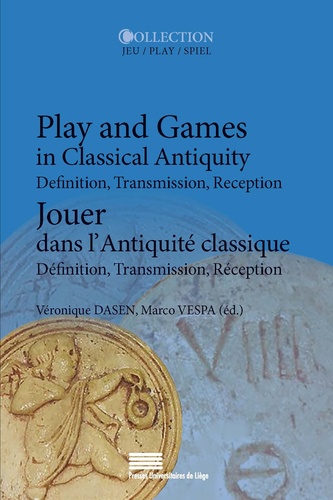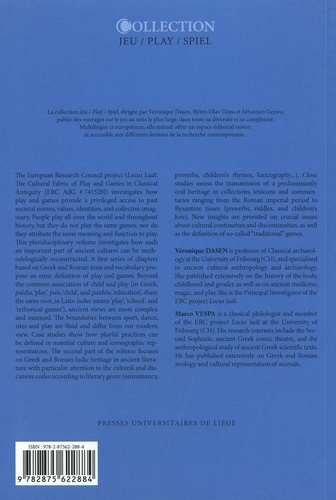En cours de chargement...
The European Research Council project (Locus Ludi. The Cultural Fabric of Play and Games in Classical Antiquity [ERC AdG # 741520]) investigates how play and games provide a privileged access to pass societal norms, values, identities, and collective imaginary. People play all over the world and throughout history, but they do not play the same games, nor do they attribute the same meaning and function to play.
The pluridisciplinary volume investigates how such an important part of ancient cultures can be methodologically reconstructed. A first series of chapters based on Greek and Roman texts and vocabulary propose an emic definition of play and games. Beyond the common association of child and play (in Greek, paidia, "play", pais,"child", and paideia, "education", share the same root, in Latin ludus means "play", "school", and "rethorical games"), ancient views are more complex and nuanced.
The boundaries between sport, dance, rites and play are fluid and differ from our modern view. Case studios show how playful practices can he defined in material culture and iconographic representations. The second part of the volume focuses on Greek and Roman ludic heritage in ancient literature with particular attention to the cultural and discursive codes according to literary genre (oniromancy, proverbs, children's rhymes, lexicography...).
Close studies assess the transmission of a predominantly oral heritage in collections, lexicons and commentaries ranging from the Roman imperial period to Byzantine times (proverbs, riddles, and children's lore). New insights are provided on crucial issues about cultural continuities and discontinuities, as well as the definition of so-called "traditional" games.




